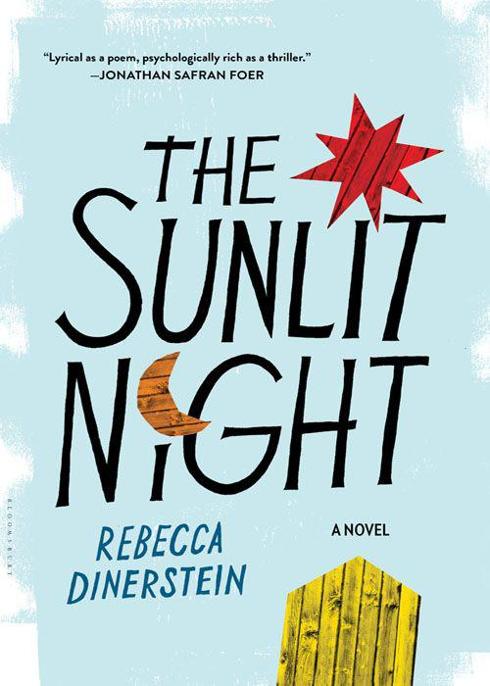
The Sunlit Night
کتاب های مرتبط
- اطلاعات
- نقد و بررسی
- دیدگاه کاربران
نقد و بررسی

Starred review from January 12, 2015
In Dinerstein’s captivating debut novel, an isolated island above the Arctic Circle is the setting for two people trying to surmount grief and find love. After being jilted by her boyfriend, 21-year-old Frances flees Manhattan to apprentice with a laconic Norwegian artist in a remote community called Lofoten, where she learns to adjust to the unending daylight of a Scandinavian summer. Meanwhile, Yasha Gregoriov, five years Frances’s junior, comes there to bury his father, Vassily, a Russian immigrant to the U.S. whose wish was to be interred in a peaceful place “at the top of the world.” Both Frances and Yasha are products of dysfunctional families. Frances’s parents bicker continually and use their high-minded principles to try to destroy the engagement of Sarah, Frances’s sister. Yasha’s mother, gorgeous Olyana, abandoned Yasha and Vassily, the kindly proprietor of a Brooklyn bakery, a decade earlier. Dinerstein (author of Lofoten, a bilingual English-Norwegian poetry collection) writes of these domestic situations with humor and compassion. Her prose is lyrical and silky, but it’s also specific, with acute observations and precise detail, and she evokes the sun-stroked, barren Norwegian landscape with a striking sense of place. Her descriptions of Yasha’s grief and of the tentative love affair between Frances and Yasha are palpable with loss and yearning. With provocative insights about the cruelty of abandonment, the concept of home, and the limits of parental and filial love, Dinerstein’s novel is a rich reading experience. Agent: Jenni Ferrari-Adler, Union Literary.

April 1, 2015
At the very top of the world, two lonely outsiders find comfort in each other in Dinerstein's deliciously melancholy debut. After her college relationship predictably disintegrates, 21-year-old Frances, an aspiring artist, accepts an apprenticeship at the Viking Museum in Lofoten, a string of islands 95 miles above the Arctic Circle in Norway, trading in a summer watching her parents' marriage unravel for a summer learning to paint all-yellow murals under the tutelage of the strong and silent Nils. Meanwhile, 17-year-old Yasha and his beloved baker-father, Vassily ("if the Danishes are sour, one babka on me"), gleefully ditch their home in Brighton Beach to take a summer trip back to the motherland. But the trip, such as it was, ends in tragedy, and Yasha, too, finds himself in Lofoten, now unmoored and unattached. And so Frances and Yasha-united by their separate losses, united by being the sorts of people who deal with those losses by building new and inherently temporary lives at an Arctic Viking Museum-fall into an unlikely kind of romance. Dinerstein's writing is light and lyrical, and her descriptions of the far north are intoxicating. Yasha and Frances and the cast of sitcom-ready Norwegian misfits who staff the museum are engaging and sad and quirky, if not particularly substantial. It hardly matters, though, because the heart and soul of the novel belongs to the fathers: Yasha's father, with his bakery and his deep optimism and his broken heart, and Frances' father, a colossally talented medical illustrator who, in late middle age, seems to be methodically disassembling the life he's built. As the rest of the novel fades into memory, it's the fathers, in their supporting roles, who linger long after the last page. A poetic premise with language to match.

April 15, 2015
Escaping a family crisis and a humiliating breakup, Frances accepts an art fellowship in the northern reaches of Norway, working as an apprentice to an uncommunicative painter. Meanwhile, high school student Yasha returns from America to Russia with his father, who hopes to reunite with the wife who stayed behind ten years earlier. The two story lines converge midway through the novel, as Yasha and his family turn up in the remote coastal town where Frances is staying. The disorienting "midnight sun" of summer near the Arctic Circle creates a mystical setting as the characters work out their personal and family dilemmas. New Yorkers Frances and Yasha (both immensely likable characters) experience profound culture shock in the sparsely populated town and yearn to connect with each other. The "will they/won't they" tension keeps the pages moving, and readers will delight in the often surprising turns of phrase offered by debut novelist Dinerstein (also a published poet): a first view of mountains is described as "horrifying," and a character's body is said to be "tonguing the wind that blew around it." VERDICT The unusual setting and evocative language will appeal to those looking for a summer read with a bit more depth.--Christine DeZelar-Tiedman, Univ. of Minnesota Libs., Minneapolis
Copyright 2015 Library Journal, LLC Used with permission.

























دیدگاه کاربران